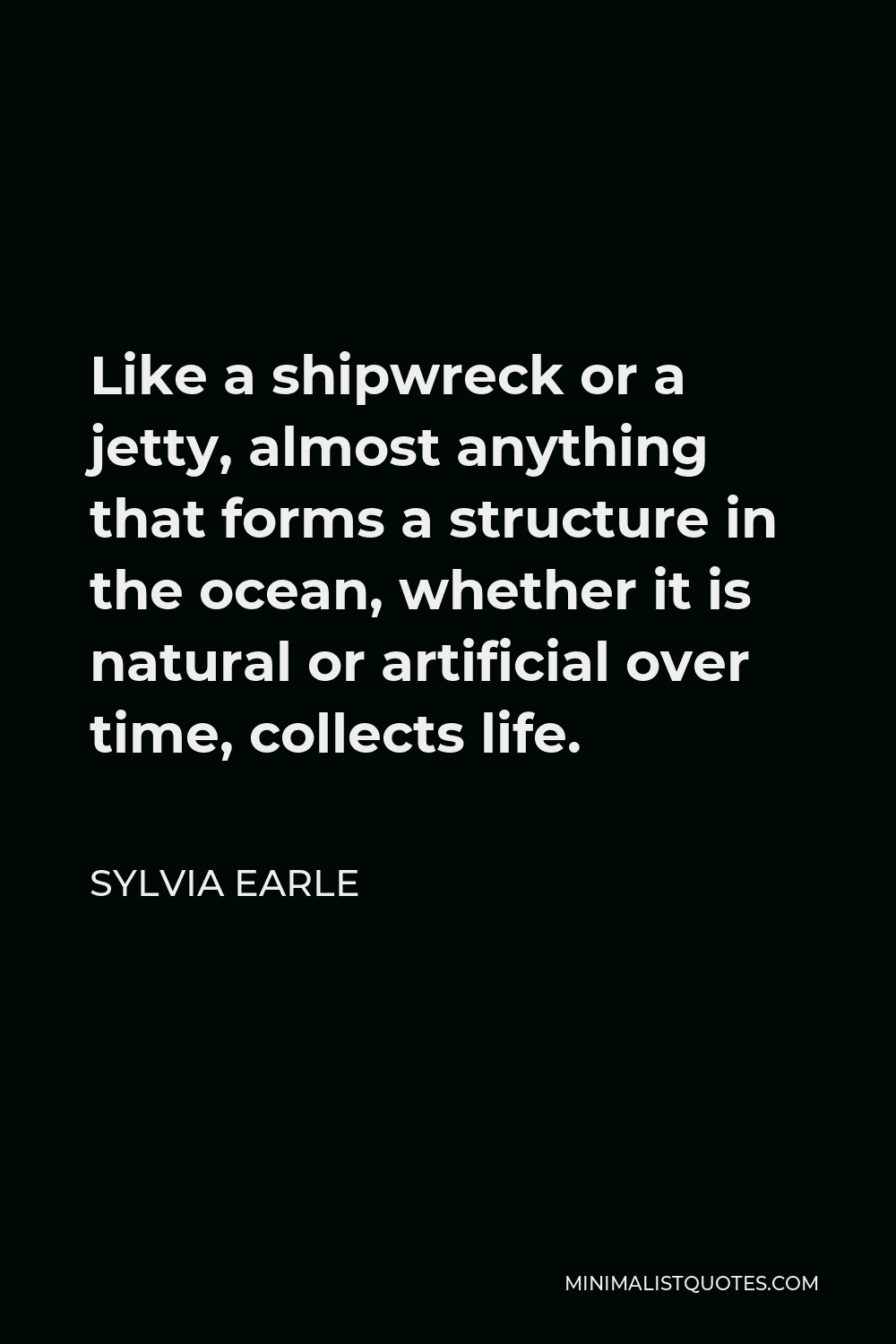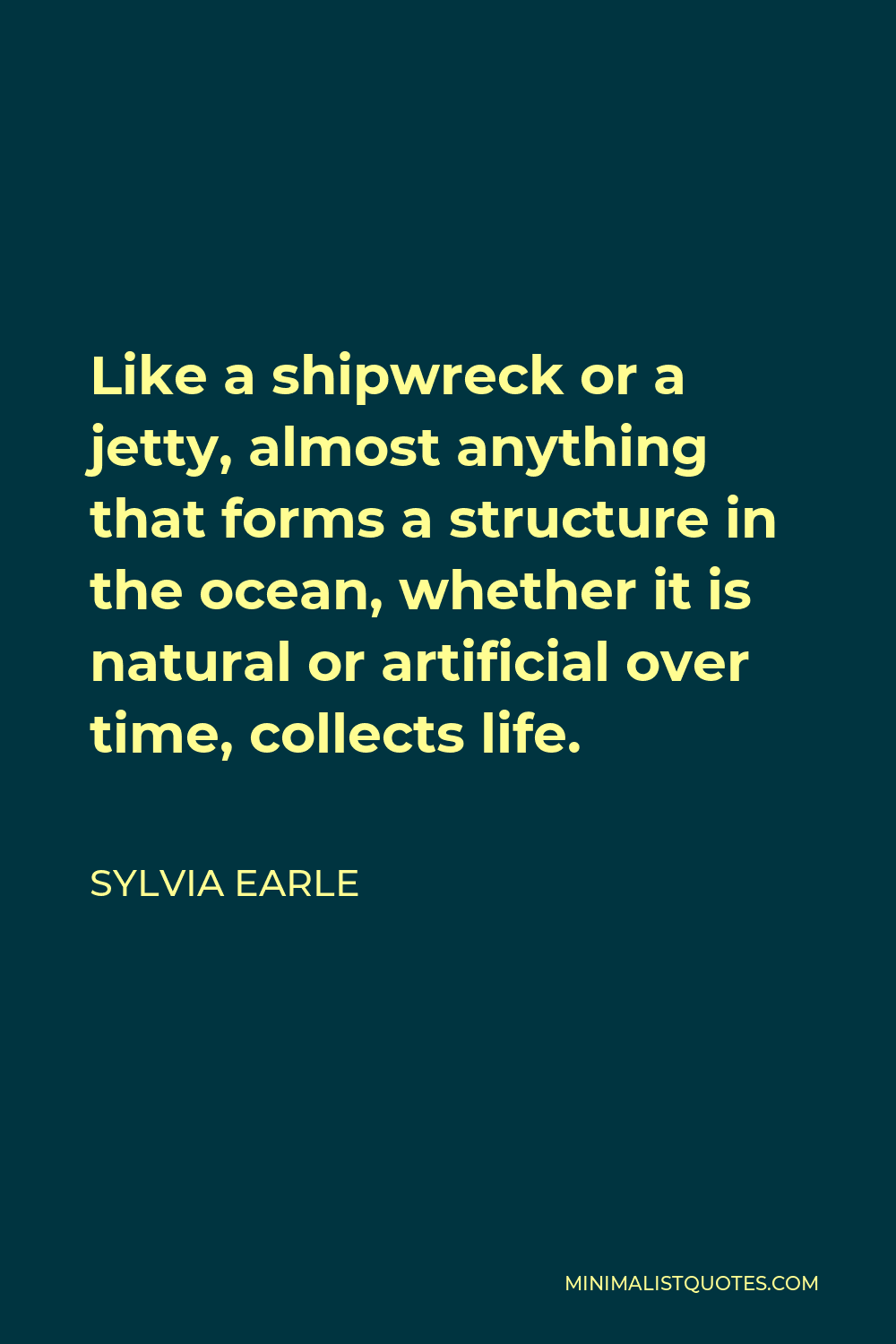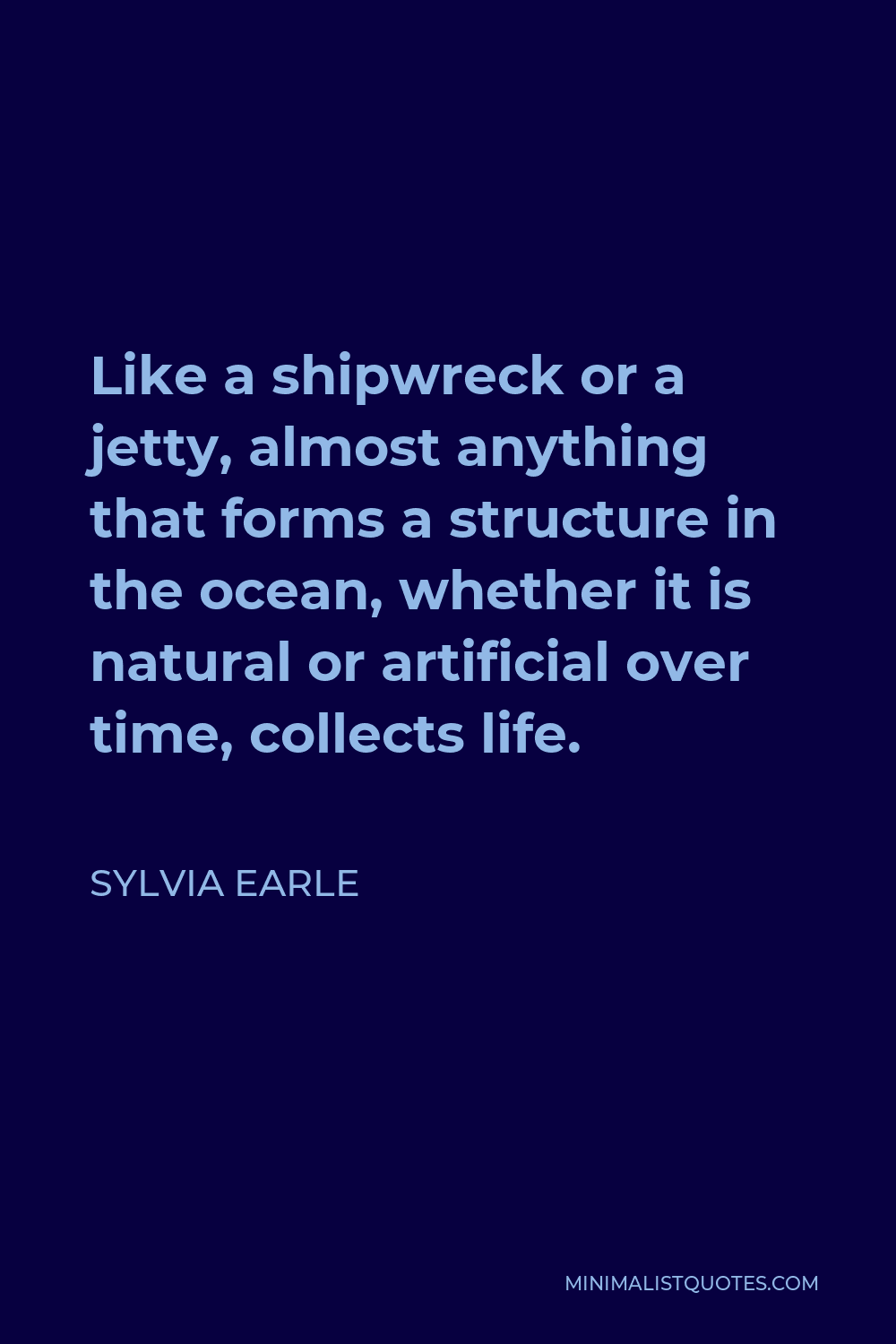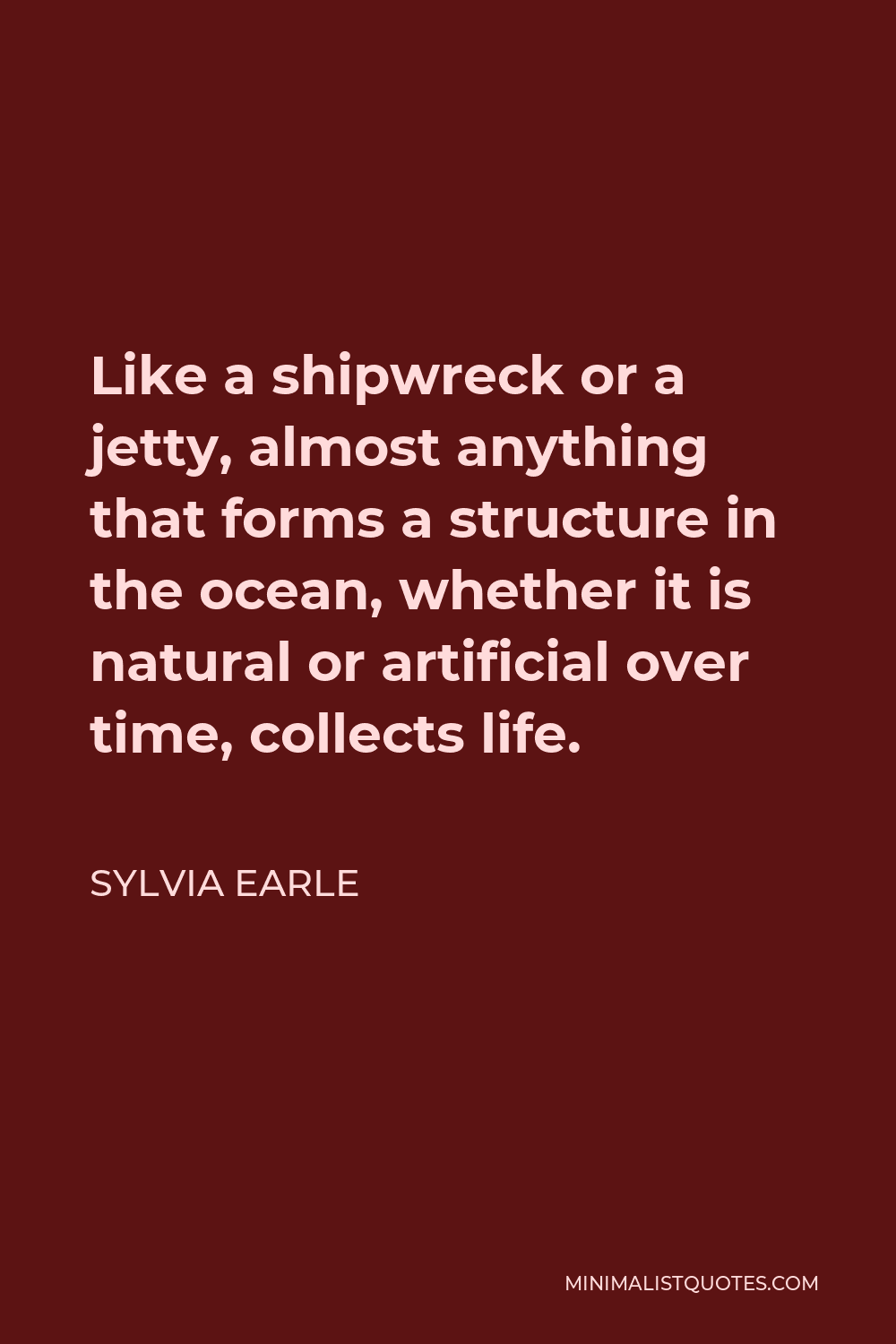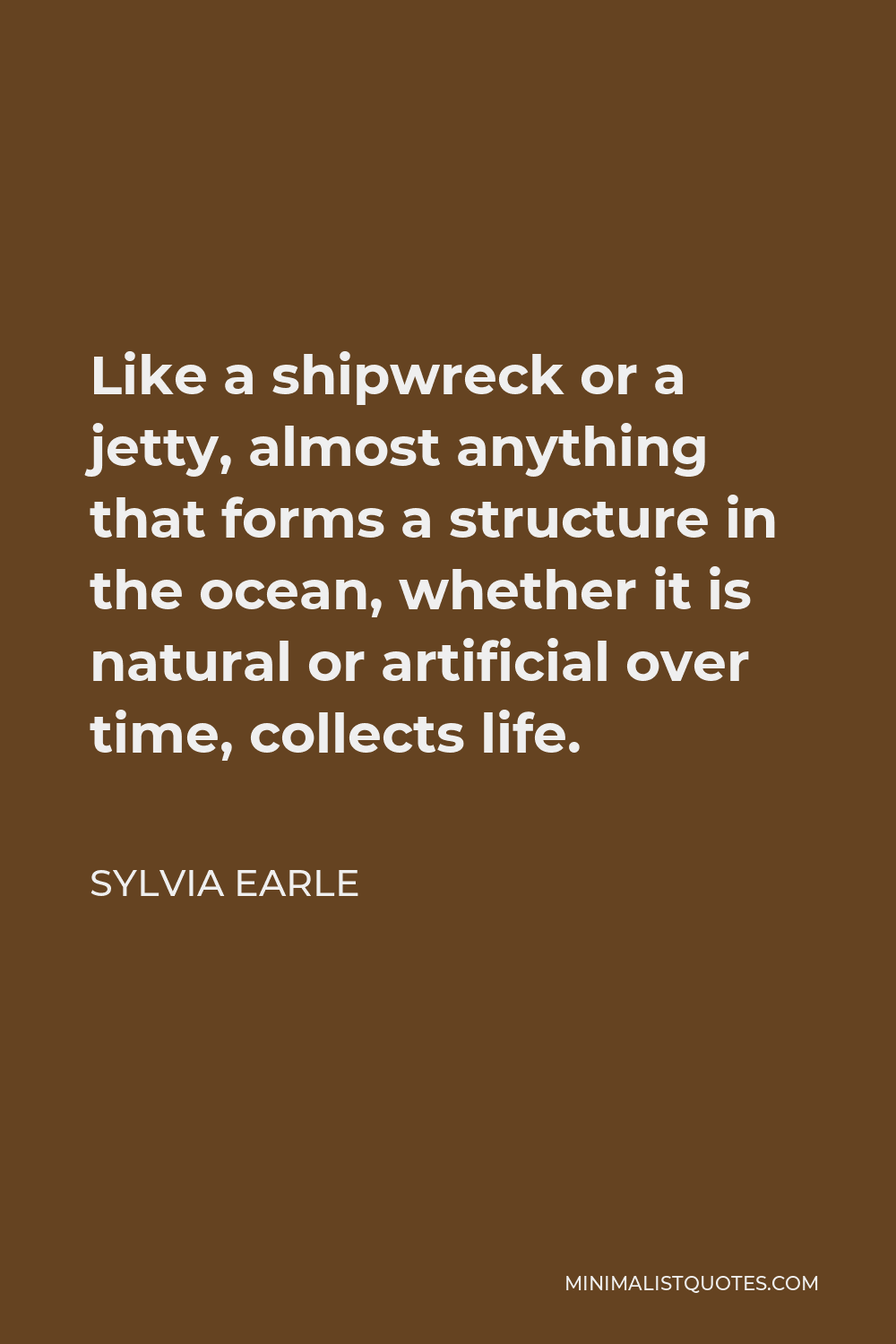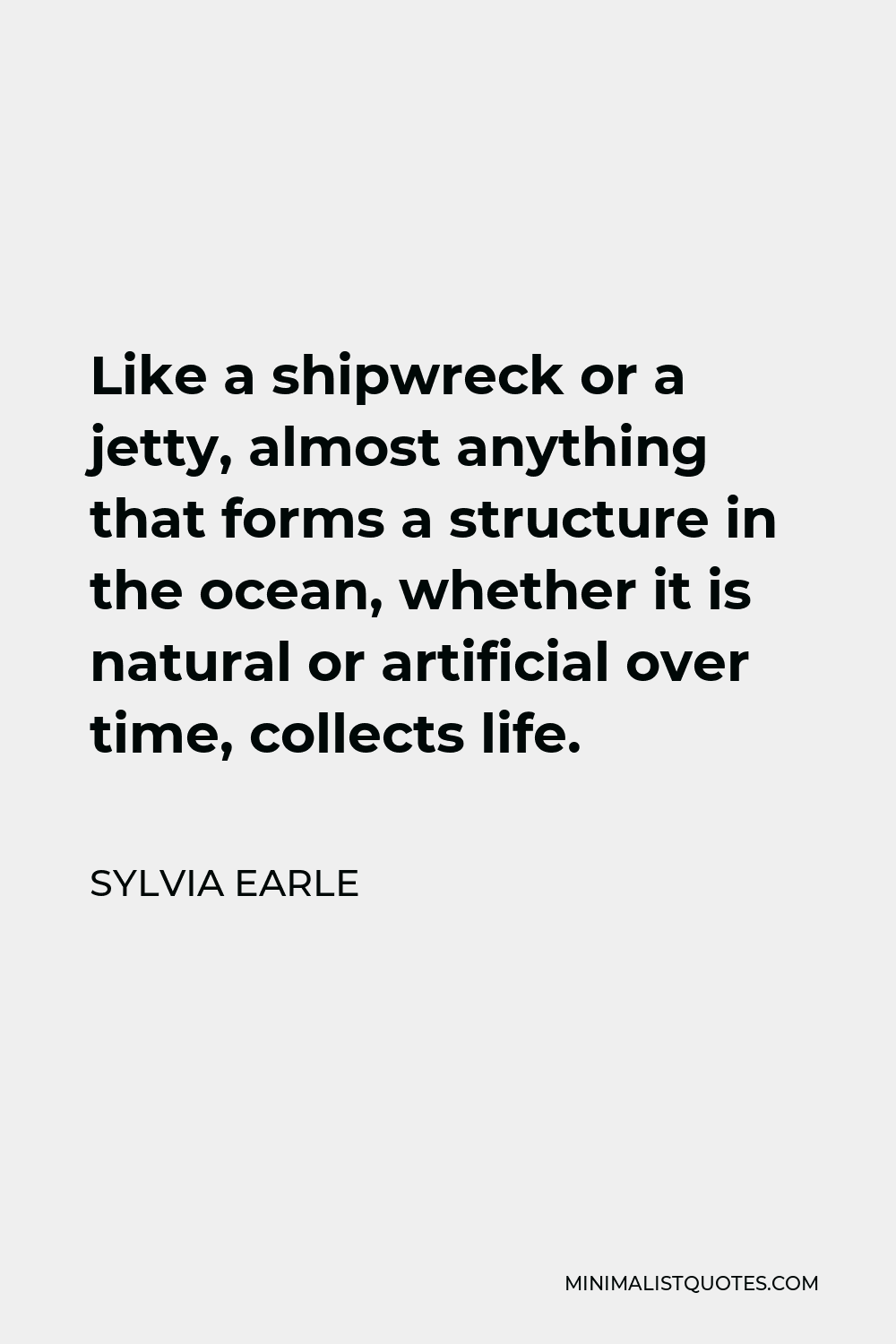They have a lateral line down their whole body that senses motion, but maybe it does more than that.
SYLVIA EARLELike a shipwreck or a jetty, almost anything that forms a structure in the ocean, whether it is natural or artificial over time, collects life.
More Sylvia Earle Quotes
-







-





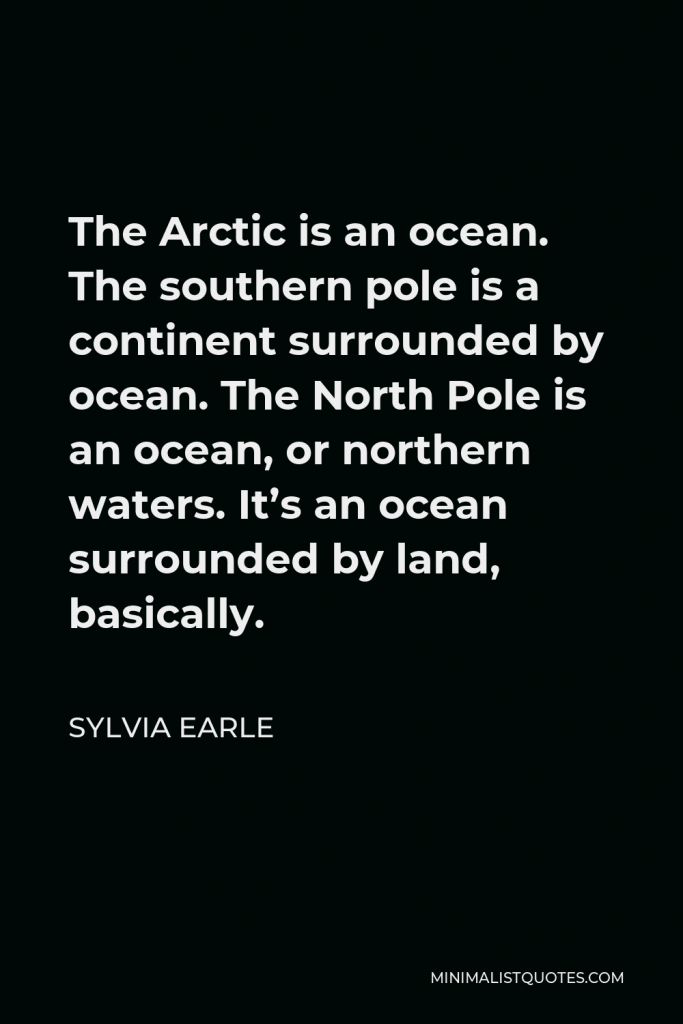

The Arctic is an ocean. The southern pole is a continent surrounded by ocean. The North Pole is an ocean, or northern waters. It’s an ocean surrounded by land, basically.
SYLVIA EARLE -





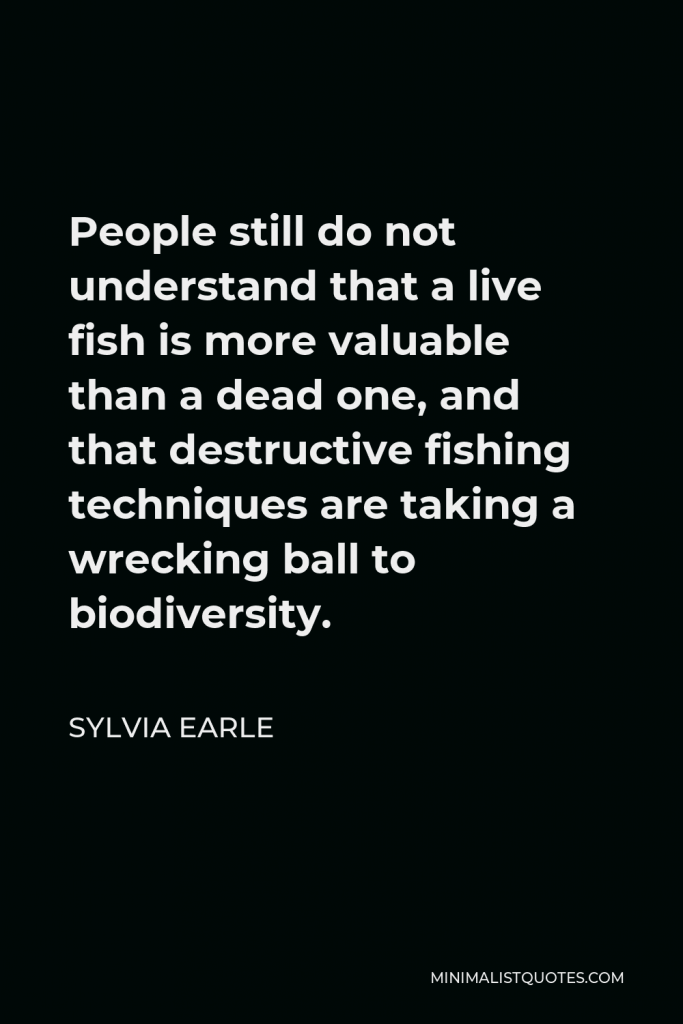

People still do not understand that a live fish is more valuable than a dead one, and that destructive fishing techniques are taking a wrecking ball to biodiversity.
SYLVIA EARLE -





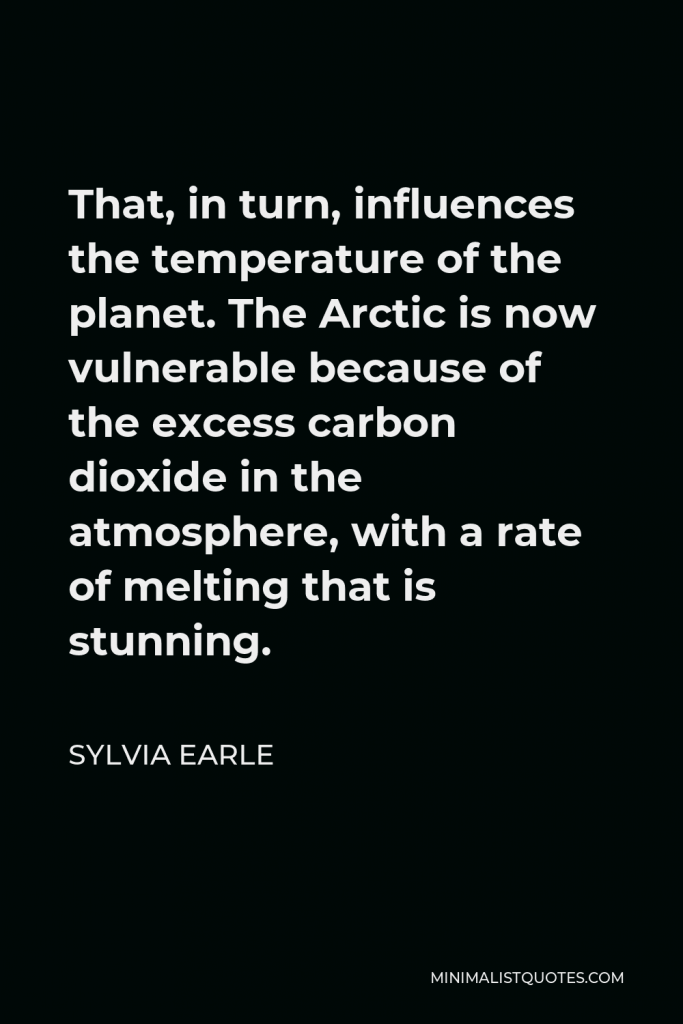

That, in turn, influences the temperature of the planet. The Arctic is now vulnerable because of the excess carbon dioxide in the atmosphere, with a rate of melting that is stunning.
SYLVIA EARLE -







They are so beautiful, a pair is in the Museum of Modern Art. The set I have are ruby red. I call them my ruby flippers.
SYLVIA EARLE -





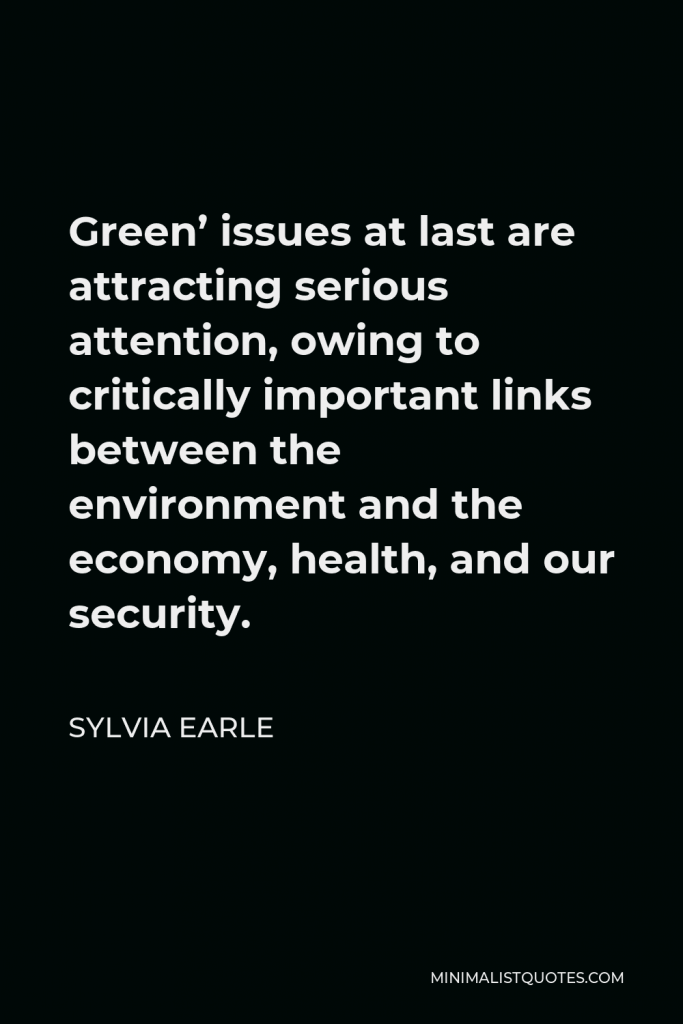

Green’ issues at last are attracting serious attention, owing to critically important links between the environment and the economy, health, and our security.
SYLVIA EARLE -





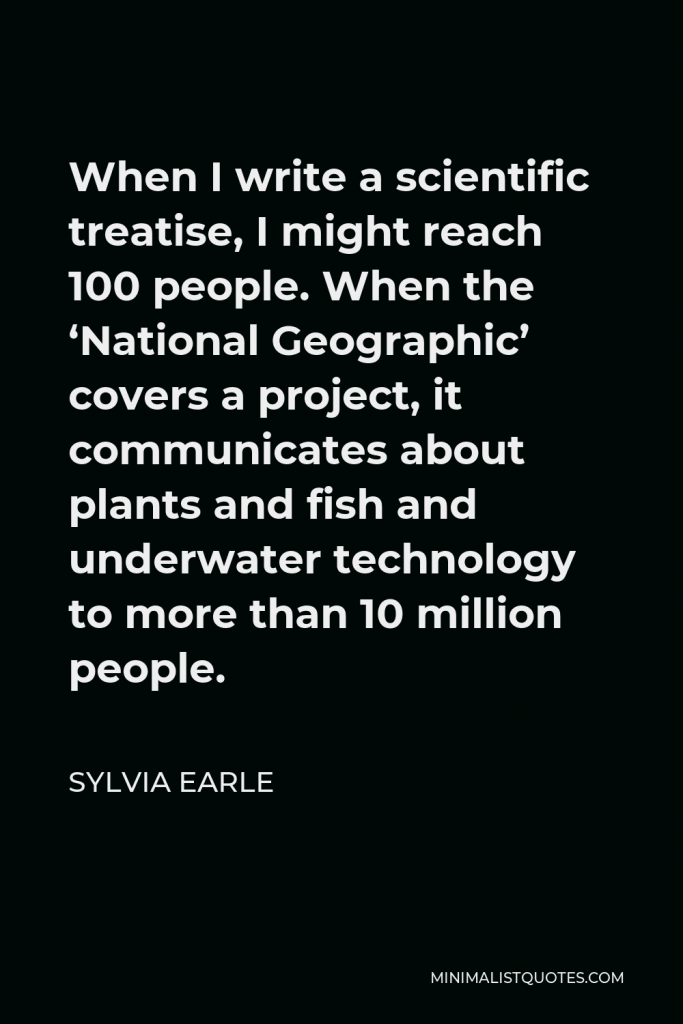

When I write a scientific treatise, I might reach 100 people. When the ‘National Geographic’ covers a project, it communicates about plants and fish and underwater technology to more than 10 million people.
SYLVIA EARLE -





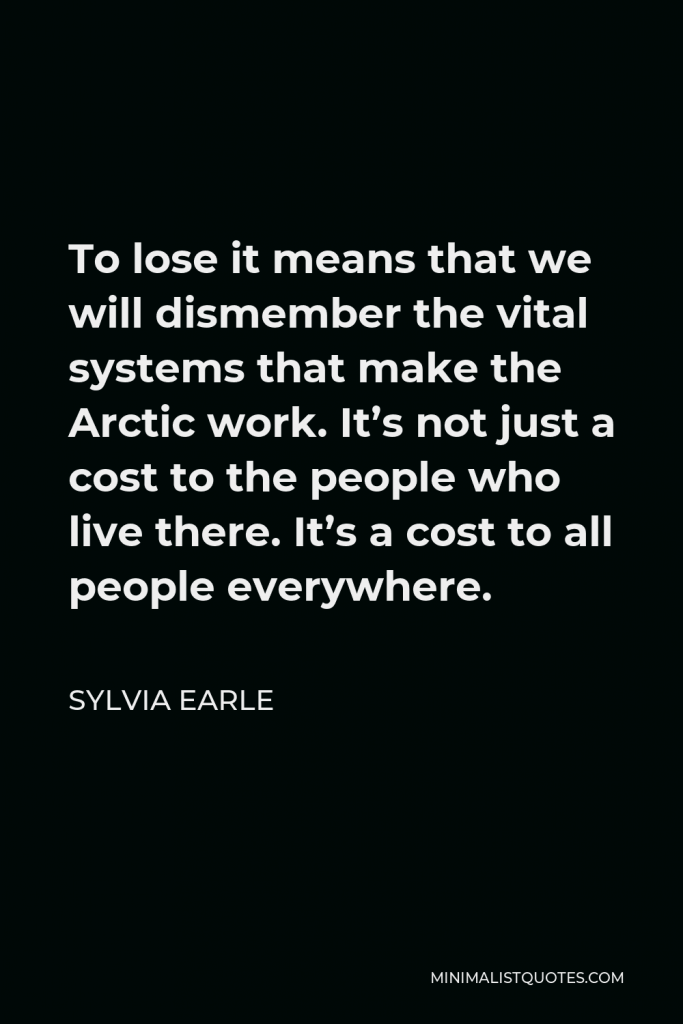

To lose it means that we will dismember the vital systems that make the Arctic work. It’s not just a cost to the people who live there. It’s a cost to all people everywhere.
SYLVIA EARLE -





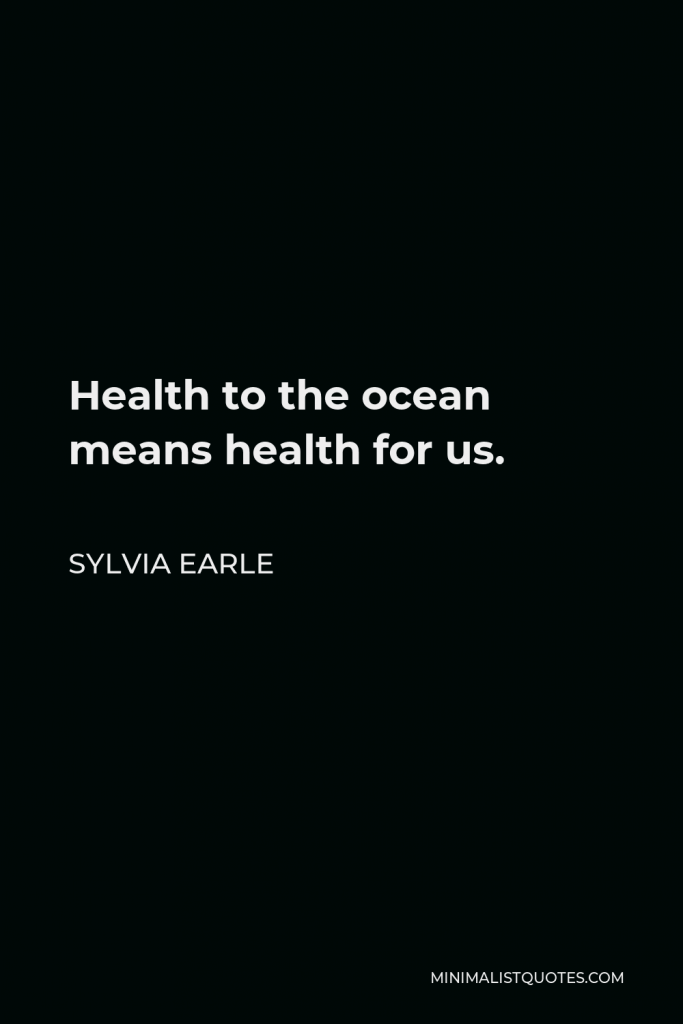

Health to the ocean means health for us.
SYLVIA EARLE -







Humans are the only creatures with the ability to dive deep in the sea, fly high in the sky, send instant messages around the globe, reflect on the past, assess the present and imagine the future.
SYLVIA EARLE -







Hold up a mirror and ask yourself what you are capable of doing, and what you really care about. Then take the initiative – don’t wait for someone else to ask you to act.
SYLVIA EARLE -





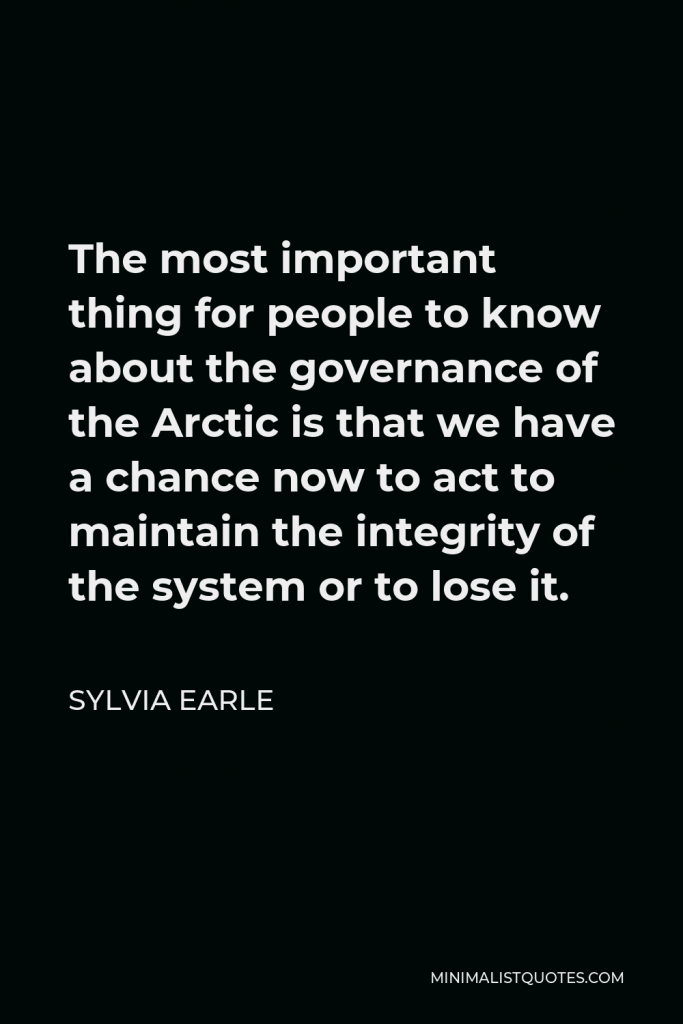

The most important thing for people to know about the governance of the Arctic is that we have a chance now to act to maintain the integrity of the system or to lose it.
SYLVIA EARLE -





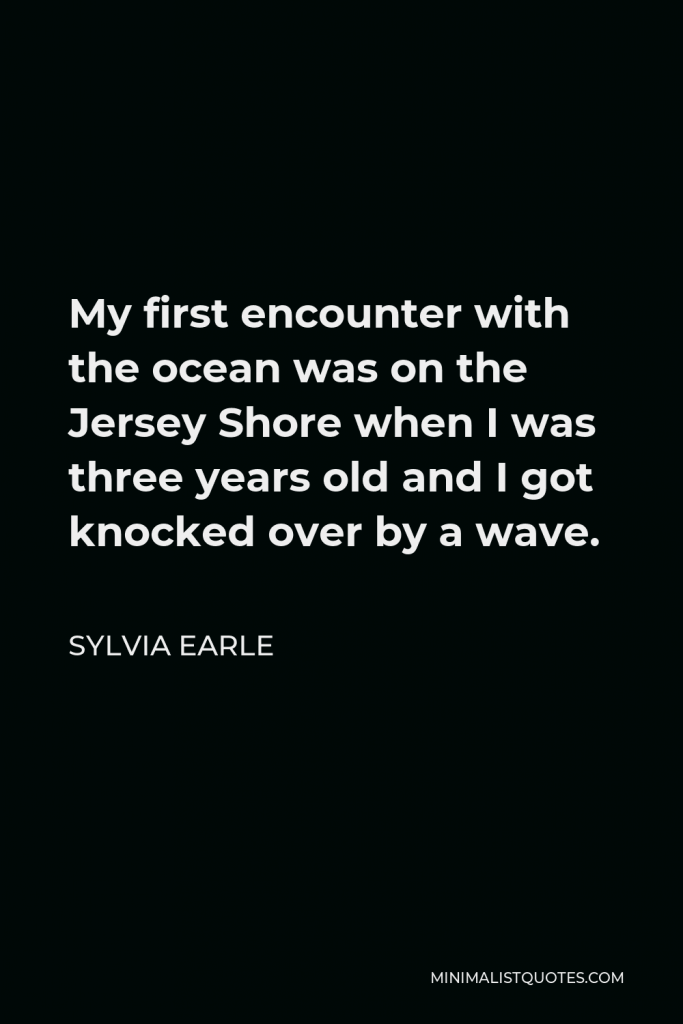

My first encounter with the ocean was on the Jersey Shore when I was three years old and I got knocked over by a wave.
SYLVIA EARLE -







Anything injured, or any unusual creature somebody found, they would always come to our doorstep.
SYLVIA EARLE -





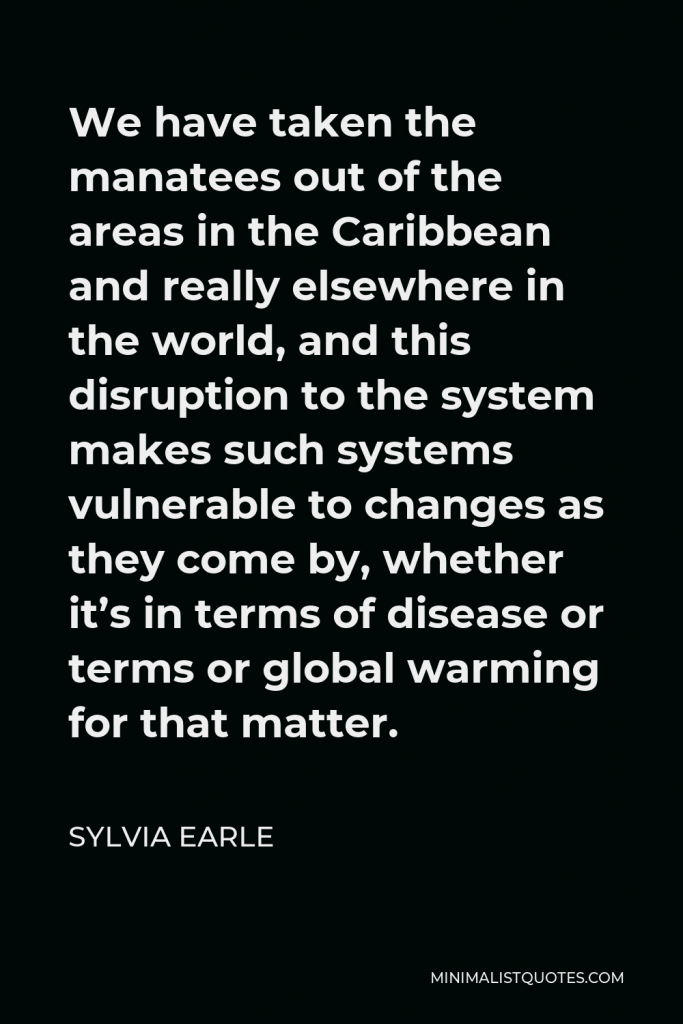

We have taken the manatees out of the areas in the Caribbean and really elsewhere in the world, and this disruption to the system makes such systems vulnerable to changes as they come by, whether it’s in terms of disease or terms or global warming for that matter.
SYLVIA EARLE -







My mother was known as the ‘bird lady’ of the neighborhood.
SYLVIA EARLE
